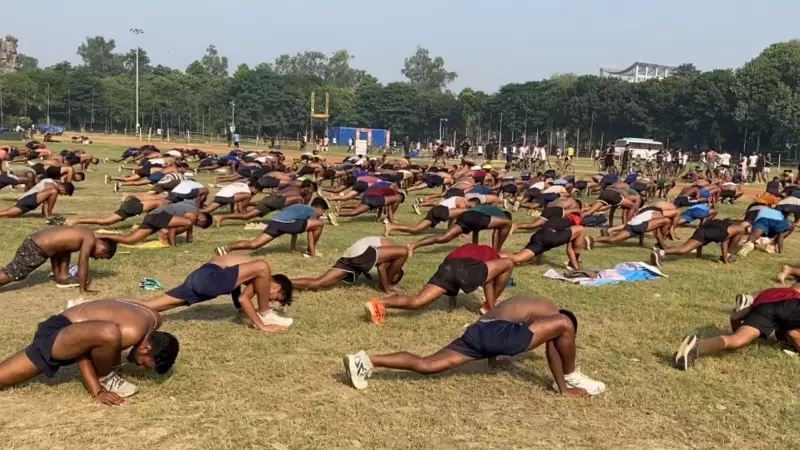
In the heart of Patna, a silent battle is unfolding between political ambitions and youthful aspirations. The historic Gandhi Maidan, once a nurturing ground for thousands of competitive exam aspirants, is rapidly transforming into a political fortress as Bihar's election season gains momentum.
The Vanishing Study Spaces
For years, the sprawling grounds of Gandhi Maidan served as an open-air classroom for students preparing for prestigious examinations like UPSC, SSC, and banking services. Young minds from across Bihar would gather here daily, forming study groups, discussing complex topics, and supporting each other's dreams of securing government employment.
"This was more than just a park for us—it was our library, our coaching center, and our support system," shares Rohan Kumar, a UPSC aspirant who has been studying at the Maidan for three years. "The open environment and peer learning helped many of us from economically weaker backgrounds access quality preparation."
Political Machinery Takes Over
The transformation began subtly but accelerated rapidly. First came the temporary offices, then the massive tents, followed by fleets of vehicles and endless streams of party workers. What was once a sea of books and determined young faces is now dominated by political banners, loudspeakers, and election machinery.
The timing couldn't be worse for exam aspirants. With crucial tests scheduled in the coming months, students find themselves displaced from their familiar study environment, forced to seek alternatives in already crowded libraries or make do with inadequate home conditions.
Broader Implications for Bihar's Youth
This spatial conflict represents a larger struggle facing Bihar's younger generation. The state, which sends thousands of candidates to national-level competitive exams each year, has limited infrastructure to support their aspirations. The takeover of Gandhi Maiden highlights how political priorities often override the needs of youth working toward better opportunities.
Local educators and career counselors express concern about the impact on preparation quality. "These students have already faced pandemic disruptions," notes Dr. Priya Singh, an academic advisor. "Losing their primary study space adds another layer of challenge to their already difficult journey."
Searching for Alternatives
As political activities intensify, students are scrambling to find new spaces. Some have moved to smaller parks, while others try to study in crowded coffee shops or makeshift arrangements. However, none offer the same combination of space, atmosphere, and peer community that Gandhi Maidan provided.
The situation raises important questions about urban planning and youth infrastructure in developing cities. While political activities are essential to democracy, the displacement of students underscores the need for dedicated, accessible spaces that support educational aspirations year-round.
As election fervor grows in Bihar, the empty spaces where students once gathered serve as a poignant reminder of the delicate balance between political processes and the dreams of the next generation.






